
What is the STCW & How Do I Get STCW Certification?
Thinking about working at sea? If so you'll need your STCW. But what is it & how do you get it? Read this if you want to work in seafarer jobs.
Read moreRead our posts for an insight into different jobs at sea, seafarer ranks, working on ships, seafarer jobs, working in the merchant navy and more.

Thinking about working at sea? If so you'll need your STCW. But what is it & how do you get it? Read this if you want to work in seafarer jobs.
Read more
Ever wondered what Ratings jobs on ships are? What even is a Rating? Our blog post has the answers. Find out all about ship's Rating jobs here.
Read more
Are you someone looking for your next job at sea? If so carry on reading and see what maritime job vacancies Martide is currently looking to fill
Read more
If you think that working in a seafarer job is all about kicking back with a beer as soon as the ship has sailed, you're mistaken. Find out more!
Read more
Work in a job at sea & sometimes feel like you haven't spoken to anyone for days? Read our tips for better communication when you work on a ship.
Read more
Are you about to return home for some well earned rest after your latest maritime job ends? If so it's time to think about your next job at sea.
Read more
A CoC can be suspended or canceled if your behavior or performance is not up to scratch when working on a ship. Here are 5 things you must avoid.
Read more
Does the 9-to-5 office job not really appeal to you as a career choice? Want a different way of working? A job at sea might be right for you.
Read more
Have you ever wondered what it's like working on a cargo ship? Did you know that just like many offices commercial vessels also have departments?
Read more
Are you thinking about what working in jobs at sea would be like? Are you looking for your ideal career? If you’ve an interest in all things nautical you might wonder what is a seafarer’s job and are looking for examples of maritime jobs. In this post we’re going to look at what an Able Seaman does.
Read more
Want to show off your culinary expertise or service skills while working on a ship? A job at sea in the Stewards Department could be for you.
Read more
In jobs at sea, the potential for career growth, whether you’re moving up the career ladder, or sideways to experience new things is amazing. But one thing you do need, whatever job role you choose, is a solid foundation of seafarer training.
Read more
One of the most obvious advances in maritime technology is the magnetic compass. And we can’t help but wonder if any of the mariners of yesteryear were as opposed to this ‘new fangled’ piece of equipment when it was introduced as some seafarers are to modern technology!
Read more
A ship’s carpenter job is exactly what it sounds like: Someone who works with wood - except on a ship. Okay, that’s got the glaringly obvious fact out the way, but there’s more to carpentry jobs on ships than you may think. For example, what do they involve, and how do you become a ship’s carpenter?
Read more
No matter what seafarer jobs, which department or which seafarer ranks you plan to work in eventually, one thing remains the same and that is that it’s necessary for a seaman interested in a career in one of the many maritime jobs to hold the relevant certifications to work on board a vessel.
Read more
It’s a brand new year so what better time to adopt some good habits that'll see you through the next 12 months while you’re away working at sea?
Read more
Are you interested in learning about seafarer jobs? Do you wonder what it’d be like to be a ship’s cook? If you’re interested in all things culinary, love spending time in the kitchen and think you could transfer your skills to a vessel’s kitchen (or galley to give it its correct name) keep reading!
Read more
There are a lot of different seafarer jobs out there and if you’re thinking about learning more about some of the different merchant navy jobs at sea that are available, you’ve come to the right blog! In this post we’re taking a look at what Marine Oiler jobs involve and what it takes to become one.
Read more
Do you want to find out more about entry level cargo jobs? Thinking that a career in the Merchant Navy / Marines might be what you’re looking for? If so, keep reading as we continue our series that explores what is a seafarer’s job and dive into the duties and responsibilities of a Wiper on a ship.
Read more
The examination concentrates on a person’s health before they accept a job role. At the same time, fit-for-work testing emphasizes the person’s functional capabilities in relation to the demands and dangers of a particular profession.
Read more
An Electrical or Electro-Technical Cadet is someone undergoing a cadetship with the goal of learning how to maintain and repair the electrical and electronic equipment and machinery onboard a ship. A cadetship involves time spent in the classroom as well as practical on-the-job training at sea.
Read more
Thinking about a maritime career and wondering whether to work in a ship's engine department or deck department? Read our blog for some advice.
Read more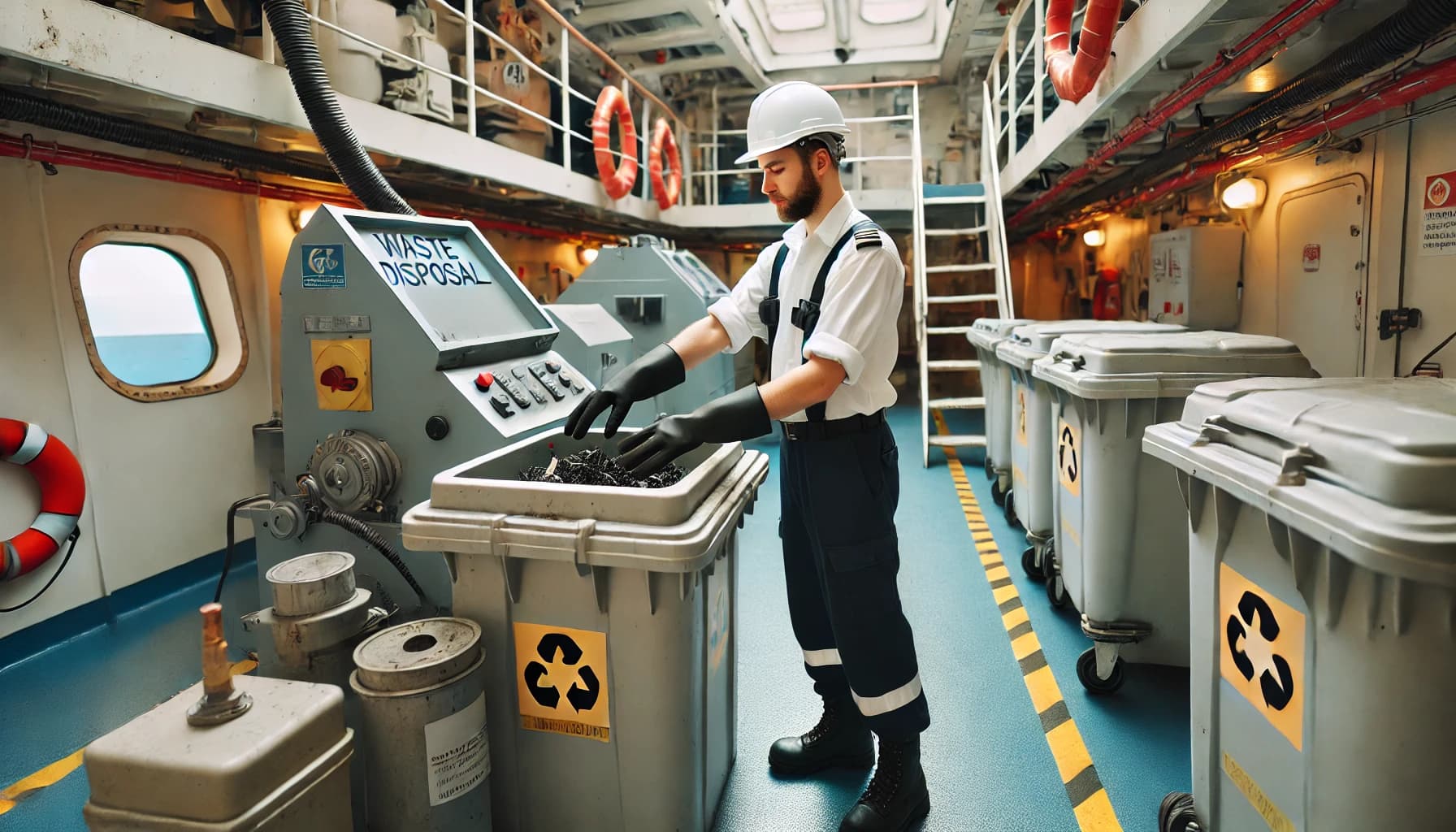
The Waste Operator, also called the Waste Disposal Operator or Garbage Operator, on a ship is someone who is responsible for ensuring that waste is handled properly and disposed of correctly. Most Waste Operators are employed on cruise and passenger ships.
Read more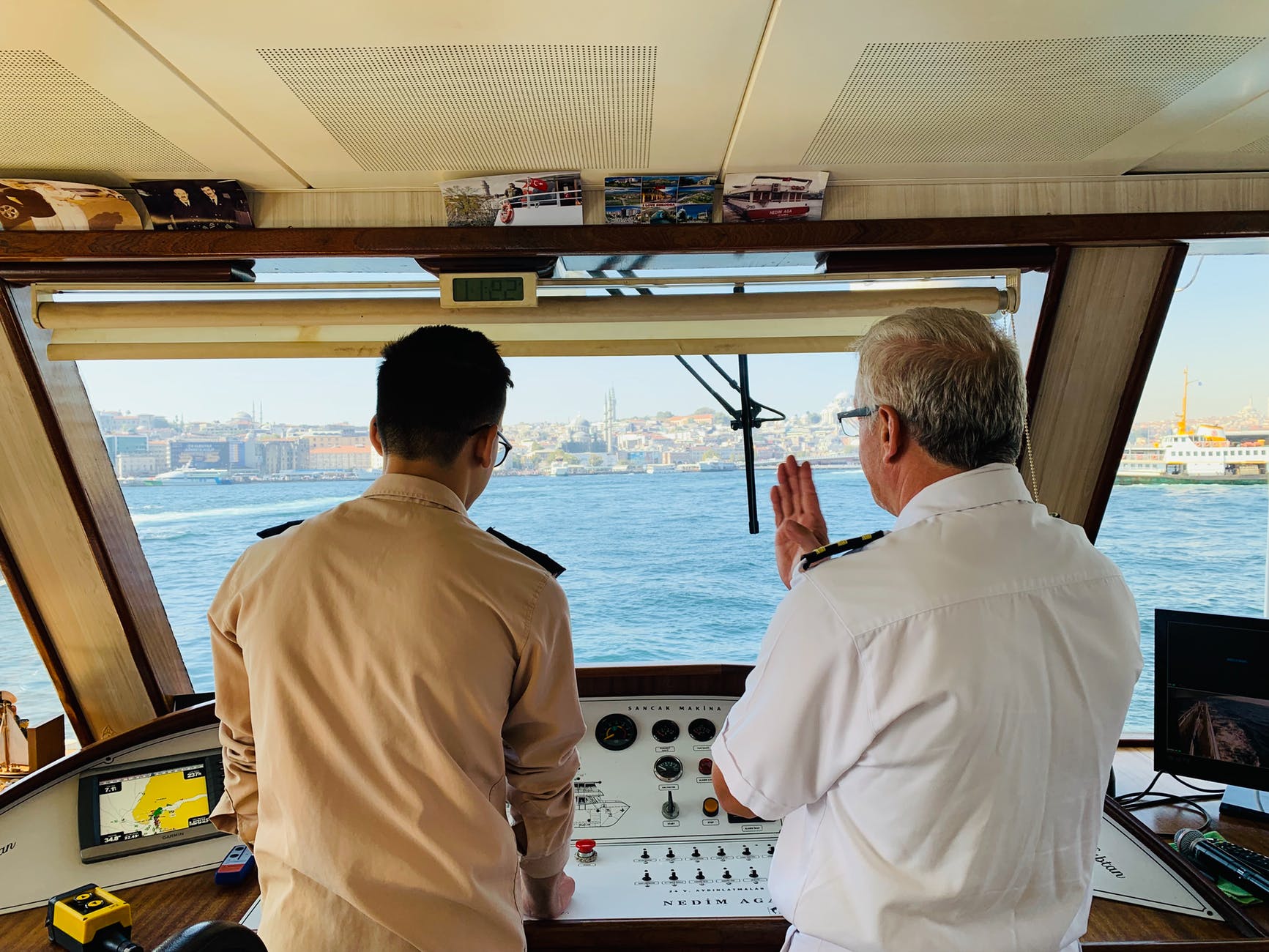
There’s so many seafarer jobs that a full list might stretch the length of a container ship’s deck and back! Maritime jobs are so varied it’s almost impossible to create a comprehensive guide to all of them in one place. But if you’re thinking about jobs at sea you really need to do your research.
Read more
What happens when an anchor is lowered but the ship doesn't stay in place? That is called a dragging anchor & we will discuss this in this post.
Read more
If you’ve ever heard the term sea time, you may have thought it refers to the time seafarers spend at sea. And you're not completely wrong. However, if you aspire to be a seafarer you need to know that sea time refers to a seafarer’s time spent working on a vessel.
Read more
Ever wondered who works in the Engine Department on a commercial vessel and what each crew member does? Our blog post has all of the answers!
Read more
Working in a job at sea isn’t for everyone but if you want something other than the 9 to 5, a maritime career offers a lifetime of opportunities.
Read more
Welcome to our latest post in the series ‘what is a seafarer’s job’. We’re looking at what a Marine Electrician does. As you might have guessed, a Marine (or Ship’s) Electrician is someone that performs maintenance, repairs and installations on electrical equipment - but onboard a vessel.
Read more
At Martide we make it easier to apply for seafarer jobs through our maritime jobs board. If you’re a seafarer looking for jobs at sea who’s applied for a vacancy with us you need to know how you can keep track of your applications. That’s where the handy My Jobs feature comes in.
Read more
In this post we explain what a Deckhand is & what a Deckhand’s duties and responsibilities are so you can decide if a life at sea is for you.
Read more
When you look at maritime jobs with a traditional mindset the idea that you might need to list technology skills on your seafarer resume might seem strange. But like many, if not all industries, maritime and jobs at sea are no longer immune to digitization and an increasing dependence on technology.
Read more
When even some of the biggest and best known companies in the world have fallen victim to cyber attacks from hackers, it pretty much means that none of us are safe - and that's both on a business and a personal level. If you're working in jobs at sea, here's how to stay safe online.
Read more
Traditionally working in a seafarer job is seen as something of a romantic choice: Running away to join the merchant navy is the stuff of legends. But seaman work is a very real job. In fact it’s not just a job or a career; you could say it’s also a lifestyle. But how do you join the merchant navy?
Read more
A seafarer’s job is intense. You deal with a pressured environment with shifts and watches and you’re often cold and wet. You want your downtime to be the opposite. But how do you get to that happy place after months of working away in jobs at sea? We look at ways to de-stress when you get home.
Read more
The maritime industry is packing up its sextants and paper charts and increasingly turning to automation and digitization. And while the new way of doing things may be quicker and more cost effective, it doesn’t come without a price.
Read more
This blog post aims to give you an insider look into being a chief marine engineer and it is one in a series of articles in which Martide takes a look at just some of the many seafarer jobs.
Read more
The first Monday of every November is Job Action Day. This year the day fell on November 7th. The point of Job Action Day is to encourage and empower people to explore their career options and find a job that they love, whether that’s a career at sea or a career on land - or even a career in the air
Read more
What is a seafarer’s job? It’s a question that gets asked a lot but the truth is, there’s no typical job at sea. There’re so many different examples of maritime jobs that you could spend days researching them. And if you’re thinking about a career in seafarer jobs that’s exactly what you need to do.
Read more
If you’ve been wondering what is a seafarer’s job and are interested in finding out what are some examples of maritime jobs, our series of articles exploring different seafarer ranks and jobs at sea should help. In this article we’re looking at Chief Officer jobs and seeing what they entail.
Read more
Have you ever wondered what some of the top paying seafarer jobs are? If you’re considering a career in jobs at sea, are wondering what are some examples of seaman jobs, or are starting to look for entry level cargo ship jobs it’s only natural to wonder what level of pay you can expect.
Read more
In this blog post we’re going to take a look at a Junior Engineer’s duties and responsibilities, what you might be doing in a typical day onboard a vessel, who Junior Engineers report to, and what the skills, interests and attributes you will need to become a successful Marine Engineer are.
Read more
Why does the maritime industry have a skills shortage? The increasing need for seafarers with tech skills? A general disinterest in seafaring as a job? The lack of women entering the sector? The reasons are debatable but it’s clear the ratio of men to women in maritime is seriously disproportionate.
Read more
In the shipping industry decision-making skills are not just important, they're critical. Here's why anyone working in a maritime job needs them.
Read more
In our series of articles which take a look at the various professions in the merchant navy we aim to answer the question: what is a seafarers job? If you’ve read any of the other posts in this series, you’ll know that that’s a tricky question to answer! In this post we’re looking at Pumpman jobs.
Read more
The advance of marine tech means vessels are now very different places to work. And the way the industry is run behind the scenes is changing too due to the digitization of platforms and upgrading of software such as the use of web-based crewing systems. But what impact does this have on seafarers?
Read more
It seems every other day there’s news about a seafarer who’s fallen victim to a fraudulent manning agent, shipping company, or non-existent seafarer job. Not only is this disappointing, it can also cost financially. So it’s crucial to be able to distinguish between genuine employers and fake ones.
Read more
Life on a container ship means perks of the job for seafarers - ones that people working in shore-based positions can only dream of. And one of those perks is the opportunity to visit new countries on shore leave. But how can you make the most of that often all too short, time on land?
Read more
According to research on maritime jobs, soft skills are “a cluster of qualities, habits, personality traits, attitudes, and social graces”. They directly impact a professional’s performance and can lead to up to 22% higher earnings for those who partake in team activities as professionals.
Read more
A Chief Steward, or Chief Stewardess, typically works on a cruise ship, a yacht or a superyacht. They are a department head and are responsible for ensuring that the guests onboard receive first rate food and service, and that all of their needs are catered to satisfactorily.
Read more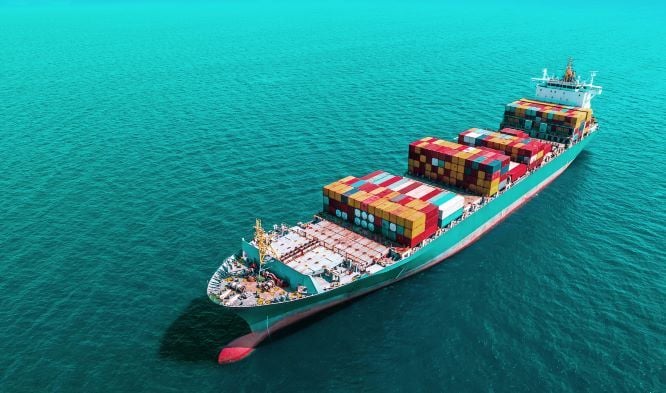
If you’re interested in working in a seafarer job, there are a number of physical attributes that you need to possess. It probably goes without saying that having good eyesight is a must to be able to work at sea, but did you know that seafarers must also pass a color blindness test?
Read more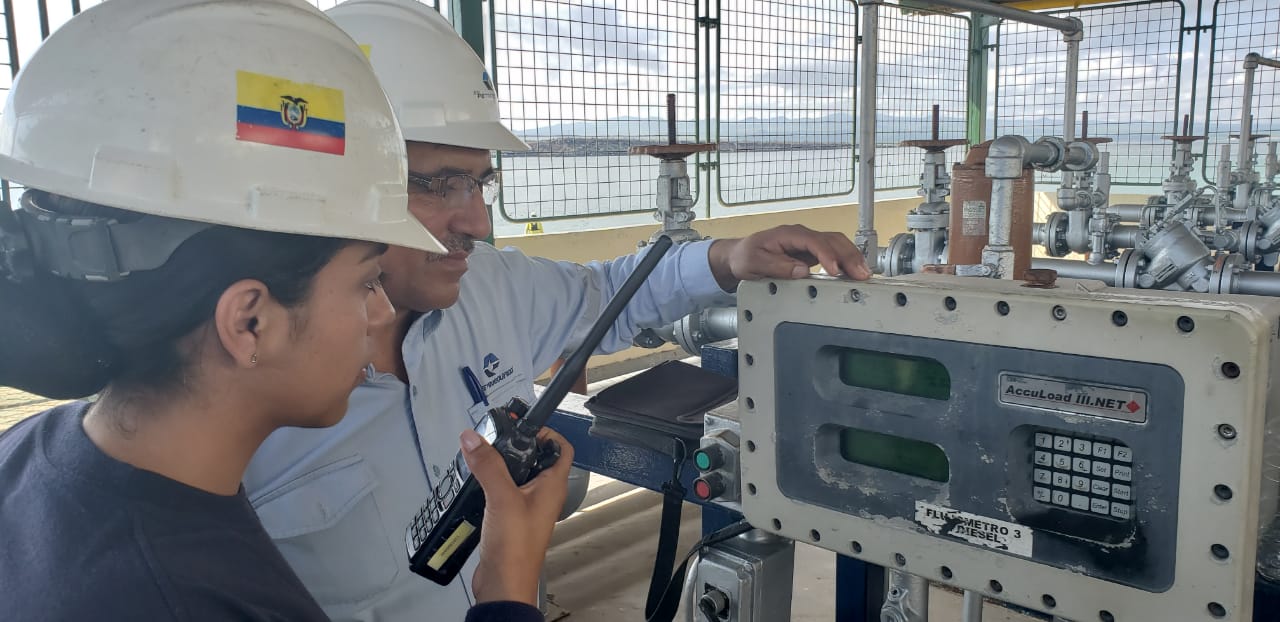
Have you ever wondered what an Electro-Technical Officer does on a ship? The ETO is one of the newer seafarer ranks and they are responsible for ensuring that all of the electrical and electronic equipment onboard are monitored and maintained to ensure the safe and efficient running of the vessel.
Read more
Do you want to know what a Deck Cadet’s job involves? You’ve come to the right place. In this post we’re going to take a look at what duties a Deck Cadet will be expected to perform, and what skills and personality traits you will need to take your first steps towards a career in seafarer jobs.
Read more
There’s a number of ways to find seafarer jobs. Whether you’re an experienced seaman or looking for entry level cargo ship jobs, we take a closer look here. From social media to crew jobs boards to working with a maritime recruitment agency, here’s the complete lowdown on where to find jobs at sea.
Read more
A ship’s Steward (or Stewardess) will most often be found working on a cruise ship, a mega yacht or a superyacht. Their main tasks are to help prepare and serve meals to guests, and take care of housekeeping. However, that’s just scratching the surface.
Read more
What is a seafarer’s job and what skills and personality traits should you possess if you’re thinking about a career in jobs at sea? It’s a good question - and there are any number of right answers, depending of course, on what type of cargo ship jobs you’re thinking of training for or applying for.
Read more
As with any job or career, there are pros and cons, good things and bad things, people that are suited for that type of work, and those who are not - and seafarer jobs are no different. In fact, working at sea is probably an even more extreme case when it comes to the ups and downs of working life.
Read more
Entry level cargo ship jobs are roles in the maritime industry undertaken by trainee seafarers and cadets. Seafaring isn’t a career in which you jump in at any level; you need to start at the bottom and work your way up. Our blog post explores different seafarer jobs and how to start a career at sea
Read more
In a series of articles Martide is looking at everything to do with finding jobs in the maritime industry. We’re exploring the different ways you can find jobs at sea, from finding out which job is right for you to maritime training and from organizing your job search to impressing an interviewer.
Read more
Looking for your next job at sea? We have seafarer jobs for all ranks & vessels. Our clients and manning agents are looking for you! Apply here!
Read more
Are you a seafarer looking for jobs at sea? Want a way to find your next crewing vacancy quickly and easily wherever you are? Applied for maritime jobs and would like to track your application? The Martide mobile app is the solution if you’re looking for seafarer job vacancies on the go!
Read more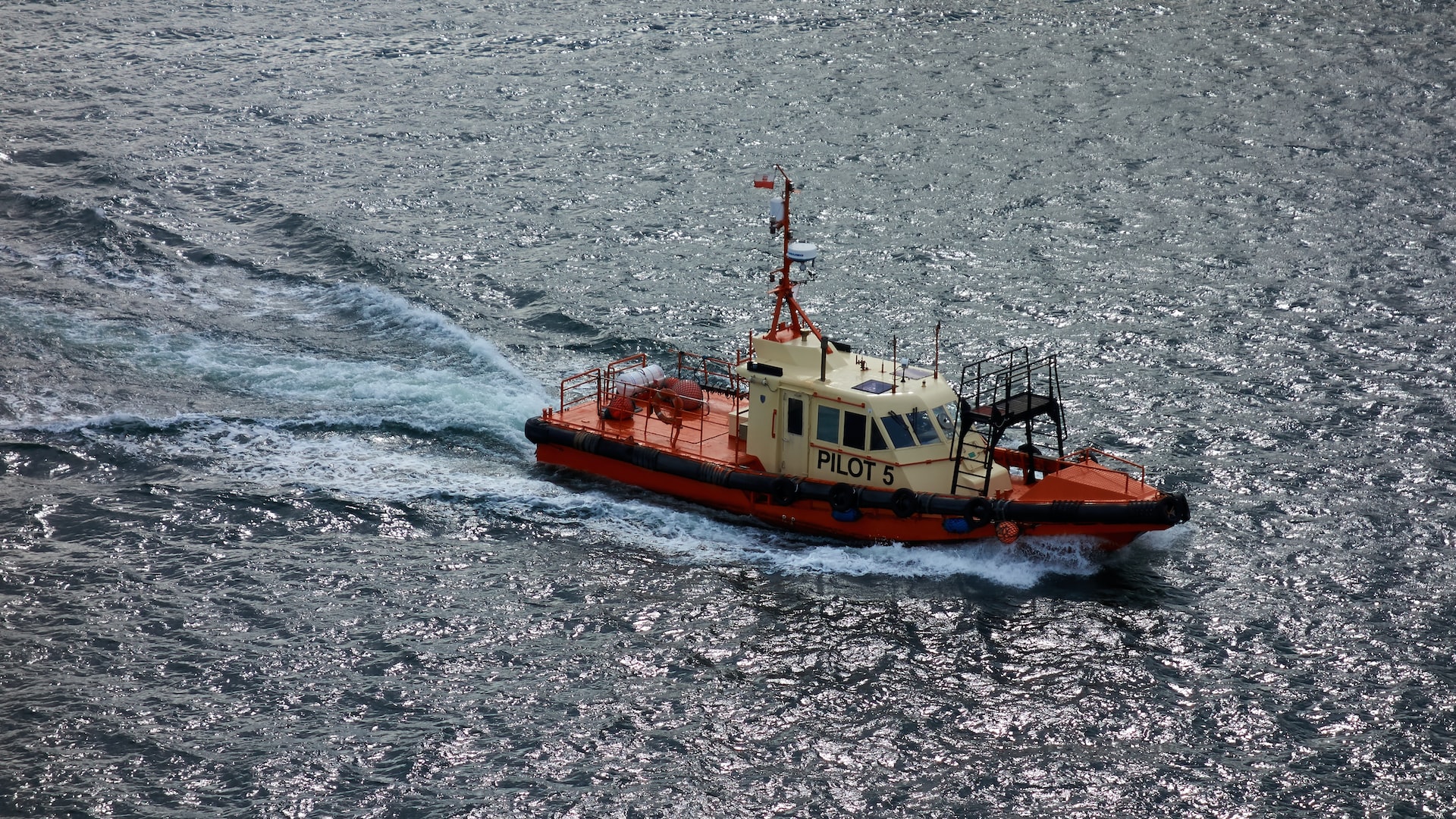
Pilot jobs are typically associated with flying planes or helicopters. But did you know there’s also a career to be had as a maritime pilot?
Read more
On a merchant navy vessel there are a few different departments and a strict hierarchy of seamen and women who work beneath the heads of those departments. But what are those seafarer ranks? Read on and we will take a look at the jobs on a container ship.
Read more
Our clients and manning agents are looking for different seafarer ranks, from entry-level seafarer jobs to Chief Officer jobs and Master jobs.
Read more
Are you a seafarer with experience in jobs at sea that include working on LNG fueled ships? If so you’re in high demand! As a greener cleaner energy Liquified Natural Gas is changing the future of the maritime industry. And seafarers who have the expertise will see their popularity rise!
Read more
A seaman’s book is an official, mandatory document that logs information about your licenses and details about your experience working on ships.
Read more
The Master is the highest seafarer rank and the most prestigious of all of the seafarer jobs. A Master has ultimate responsibility for everything that happens on his or her vessel, including the security of the ship, and the safety of the crew and cargo, and any passengers, both in port and at sea.
Read more
Have you ever wondered what the Navigation Officer on a ship does? What are their duties & responsibilities? We take a look at this seafarer job.
Read more
Are you interested in finding out about jobs at sea? Would you like to know more about what life at sea is like for someone in a seafarer job? Perhaps you’d like to know more about seafarer ranks and see if they might be the right maritime career pathway for you. Today we look at Motorman jobs.
Read more
An excavator driver or AB-excavator driver on a ship is similar to their shore-based counterparts in that their main duty is to safely and efficiently operate plant machinery. The obvious difference is that an excavator on a ship is on deck and used for cargo and salvage operations and dredging.
Read more
Must you know how to swim to work in a job at sea? What if we tell you that technically you can be a seafarer even without knowing how to swim?
Read more
Junior electrician jobs at sea are essentially regular electrician jobs but onboard a vessel. Everything a land based electrician does is part of a marine electrician’s job responsibilities - plus the additional skills and personality traits required to work in the maritime industry!
Read more
Unfortunately there are too many unscrupulous companies out there posing as maritime recruitment agencies, manning agents or crewing agencies whose sole purpose is to rip off seafarers
Read more
What is a seafarer’s job? is the question we’ve been aiming to answer and if you’ve read any of our other seafarer job posts that explore examples of maritime jobs, you’ll know it’s a hard question to answer! However in this post we‘re going to take a look at a Messman’s duties and responsibilities.
Read more
If you work in a seafarer job you use the internet to look for jobs at sea, for finding seafarer training and new employers and manning agents who can help you find a new contract. And for all the other things to do with your maritime career! So here are 15 of the best websites for seafarers.
Read more
So is being a plumber on a cruise ship very different from being a plumber who fixes burst water pipes in a home or business? While the basics of plumbing are the same, it goes without saying that the working conditions for a plumber on a ship are very different!
Read more
Shipfitter jobs are exactly what they sound like: the job entails fitting the parts of a ship together. But that’s a deceptively simple description of this physically demanding and highly skilled job. If you’re interested in applying for shipfitter jobs in the maritime industry contact Martide now.
Read more
As well as making sure you have the right talents and skills to work in the seafarer jobs you think will most interest you and you will be suited to there are some personality traits you also need to consider and some questions you need to ask yourself when thinking about working in cargo ship jobs.
Read more
Martide is continuing our series of blog posts that explore the theme “what is a seafarer’s job” by looking at examples of maritime jobs and jobs at sea. In this post we look at Bosun jobs and see what they involve. If you’re interested in a career at sea, find out if a Bosun’s life is for you!
Read more
Even though sailors of today employ GPS and other high-tech gadgets to navigate their vessels across treacherous waters, the principles of a safe navigational watch remain the standard and protocol.
Read more
It’s no secret that maritime jobs are demanding. They’re hard work and can be tough both on body and mind. But those working in seafarer jobs have numerous reasons to take pride in the career path they chose. And it is this sense of pride that can help you through days that feel tougher than usual.
Read more
A closer look at jobs in seaports. We’ll cover what kind of maritime jobs there are in ports. What skills are needed. What training and qualifications you should have. If you're thinking about starting a career in marine jobs ashore or leaving the ocean for good read this first.
Read more
At Martide we’re always looking for qualified seamen and seawomen for our employers’ and manning agents’ maritime job vacancies. So if you haven’t created a Martide account yet and you’re looking for a job at sea, we highly recommend you make it your new year’s resolution!
Read more
How is the digital transformation of the maritime industry changing the scope of seafarer jobs and lives? Will autonomous ships lead to a reduced number of crew? Martide takes a look.
Read more
If you’re looking for seafarer jobs, we’re pleased to say that you’ve come to the right place! At Martide we have a quality selection of different types of maritime jobs ready and waiting for qualified seamen to apply to. In this blog post we’re going to look at how to find your next cargo ship job.
Read more
It’s not exactly a secret that getting a good night’s sleep is essential for living a happier and healthier life - and while many on land can suffer with sleep disorders such as insomnia, how do you cope if you struggle to get quality sleep while working in a seafarer’s job?
Read more
It’s no secret shipping has a high ratio of men to women in seafarer jobs. Much can be blamed on the traditional mindset of a male dominated industry. But what other causes are there for a female seaman being such a rare sight? Martide take a look at some reasons.
Read more
You’ve graduated and want to start your career in maritime jobs by landing one of those coveted seafarer jobs. But in an industry that often chooses experienced seamen over cadets that can be easier said than done. If you’re a newly qualified seaman here's some tips on how to kickstart life at sea.
Read more
Do you see yourself living life on a container ship? Are you considering a career in the maritime industry? Maybe you just want to know what life on a vessel is like? Our office-based coworker recently spent a week on a cargo ship and this is a unique insight into day-to-day life at sea.
Read more
A good ship's menu can boost morale and make crew less homesick. Learn the secrets to a delicious, diverse menu that caters to all onboard.
Read more
When you’re at sea no two days are the same. There’s so many factors that play a part in shaping not just a voyage, but any given day on the ocean. The wind, sea, weather, currents, and even the vessel type. Therefore the only way a seafarer can be prepared for anything is through rigorous training.
Read more
Watchkeepers need to maintain lookout 24/7 365 but working on and off around the clock with broken sleep patterns can have an effect on wellbeing and life at sea. Here are 4 steps for Officers of the Watch to take to combat fatigue and find more balance.
Read more
Whether you work as a crew manager, manning agent or maritime recruitment officer, or you work a seafarer job, loving your career is a big deal.
Read more
We’re continuing our series of posts about jobs at sea with a look at what a budding Ordinary Seaman can expect from a life on the ocean wave. If you’ve ever wondered ‘what is a seafarer’s job’ you’ve come to the right place as we explore this entry level cargo ship job.
Read more
An Engine Cadet on a ship is an apprentice, or trainee, seafarer who is at the very start of his or her career in the maritime industry. They are simultaneously onboard to work and to learn so that they can progress through the various seafarer ranks found in the engine room of a vessel.
Read more